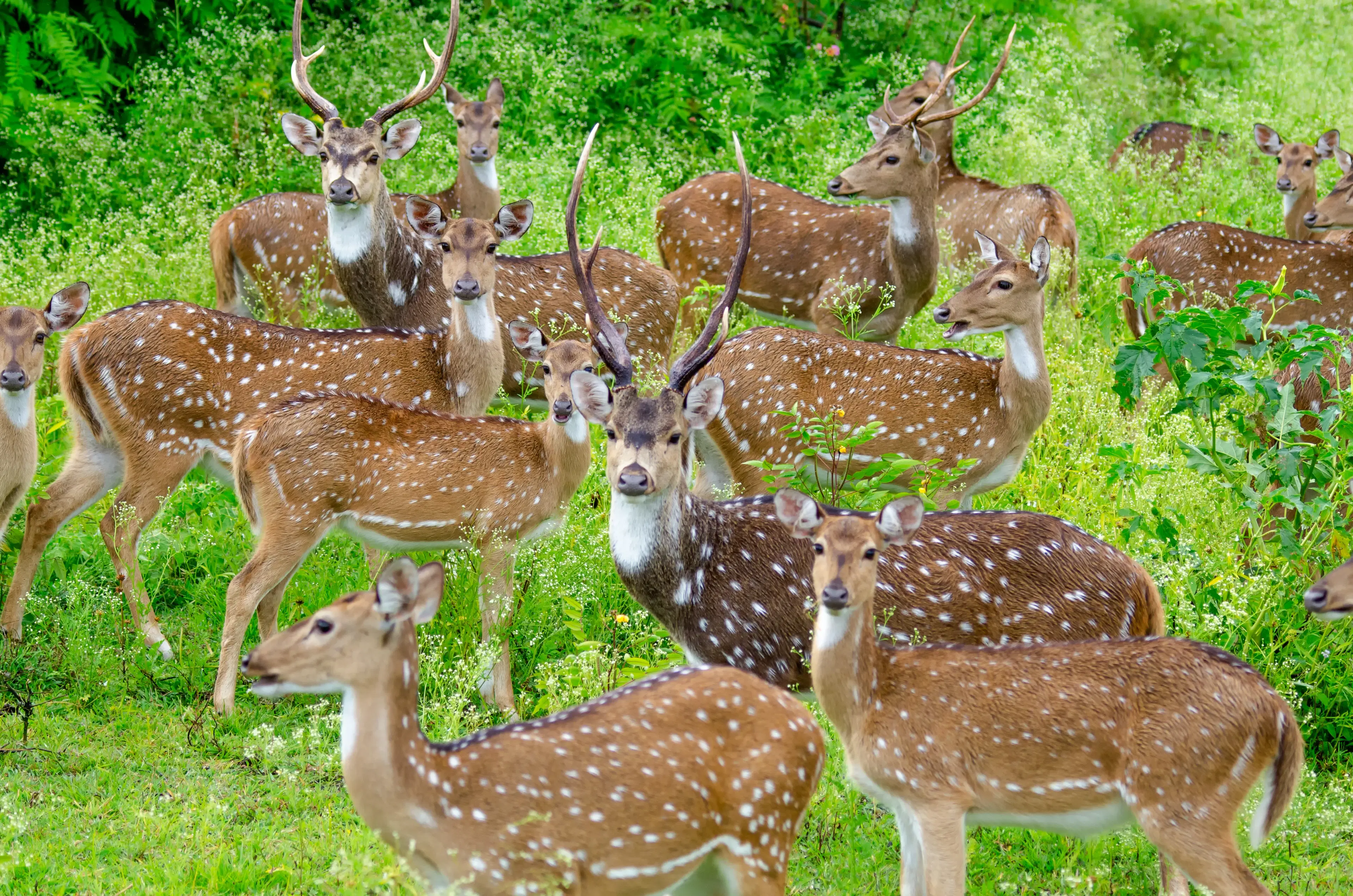
Hotels
•03 min read

India is home to some of the most breathtaking national parks in the world. These parks are treasure troves of flora and fauna. They offer a rare blend of adventure, wildlife, and natural beauty. Here, you will find a world where nature reigns and every visit is a chance to learn and explore. This post is your complete checklist for exploring national parks in India. By reading this guide, you will learn how to plan a successful trip, choose the best accommodation, pack the right items, and travel in a responsible way.
National parks are protected areas set aside for wildlife conservation and public enjoyment. They are very different from wildlife sanctuaries in India. There are over 100 national parks across the country. Parks like Jim Corbett, Kaziranga, and Ranthambore are famous worldwide. These parks safeguard India’s precious flora and fauna. They play a key role in preserving rare species while offering a chance for visitors to experience nature up close.
When planning your visit, research state-wise national parks and how accessible they are from major cities. Some parks are ideal for tiger reserves, while others are perfect for bird watching or admiring unique landscapes. Look for parks that match your interests. Consider travel times, road conditions, and local amenities. This will help you choose a park that gives you an enriching and smooth experience.
Finding the right place to stay is crucial. There are many options available around Indian national parks. Many eco-friendly resorts in India focus on sustainable tourism. Safari lodges in India offer an immersive experience close to nature. For those who love a touch of luxury, there are luxury stays near Indian national parks. Budget hotels near wildlife parks provide comfortable and affordable options. Family-friendly hotels near nature reserves offer safe and welcoming environments for everyone.
When you plan your trip, choose places to stay near Indian national parks for their convenience. Many travelers opt for accommodations that are close to the park boundaries. These include resorts close to Indian wildlife sanctuaries, and accommodations near tiger reserves. These places offer easy access to the parks and provide amenities that enhance your experience. You can find options that suit every budget and travel style.
Insight Corner: Did You Know? India is Home to 106 National Parks!
India’s national parks account for over 4% of the country’s geographical area. They are crucial in protecting endangered species like Bengal tigers, one-horned rhinos, and snow leopards. Exploring these parks responsibly helps to preserve their beauty for future generations.

Packing the right clothing and gear can make a huge difference in your park experience. Choose light layers for summer visits and warm clothing for winter trips. Bring sturdy shoes suitable for safaris and treks. A pair of reliable binoculars will enhance your wildlife viewing. A safari-friendly backpack is great for carrying your essentials during the day.
Other items you should pack include sunscreen and insect repellent. Carry a reusable water bottle to stay hydrated. Eco-friendly toiletries ensure you take only what you need. Do not forget to bring permits and valid ID proofs required in some restricted areas of the park.
While exploring national parks in India, it is important to travel responsibly. Reduce your use of single-use plastics. Respect wildlife habitats by not disturbing the animals and their space. Whenever possible, choose eco-friendly resorts in India. These stays often support local communities and conservation initiatives. Your actions can make a big difference in preserving these natural wonders.
Safety should always be a top priority. Follow all park rules and guidelines during your trip. Maintain a safe distance from wildlife. Listen carefully to your guide's instructions. By staying alert and aware, you can enjoy your adventure and protect yourself and the environment.

Wildlife safaris are among the most exciting things to do in national parks in India. Many parks, such as Kanha and Bandhavgarh, offer world-class safari experiences. The Sundarbans also provide unique boat safaris that allow you to explore lush mangrove forests and see majestic animals in their natural environment. The best times to go usually depend on the weather and the park’s peak viewing season.
Each national park has its own charm. In some parks, you can enjoy birdwatching in areas like Keoladeo National Park. Some parks offer challenging treks, as seen in Hemis National Park. Others allow for boat safaris like those in Periyar National Park. These activities add to the overall adventure that national parks in India provide.
There are currently 106 national parks in India, covering diverse ecosystems across the country.
The latest addition is the Dihing Patkai National Park in Assam, which was designated in 2021.
Famous national parks include Jim Corbett, Kaziranga, Ranthambore, Sundarbans, Bandhavgarh, Kanha, Gir, Periyar, Hemis, Keoladeo, Nagarhole, Tadoba, Pench, Manas, and Satpura.
Jim Corbett National Park in Uttarakhand is widely regarded as India’s leading national park due to its historical significance and excellent safari experiences.
This checklist shows you how to make the most of your trip to national parks in India. It covers planning your adventure, choosing the best accommodation, packing the right gear, and following eco-friendly practices. Each step builds up to a well-organized journey that honors the natural beauty and wild spirit of the parks. Embrace the adventure with care and respect while enjoying all the natural treasures that India has to offer.